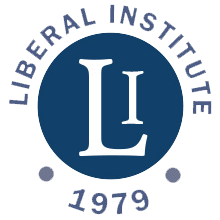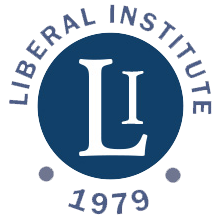
The Liberal Institute is awarding this year’s Röpke Prize for Civil Society to Javier Milei for his pioneering role in the fight against the sprawling state. The Argentine President will accept the prize in front of around 600 participants in Kloten.
On January 24, 2025, the Liberal Institute will award the Röpke Prize for Civil Society 2025 to Argentine President Javier Milei for his international pioneering role in combating the sprawling state at the traditional Freedom Celebration in Kloten, Switzerland.
There is probably no other politician in the world at present who is driving forward liberal reforms with such consistency and courage. According to Javier Milei, he gained his basic convictions from a number of outstanding thinkers of the Austrian School – an economic school of thought that is mainly cultivated and disseminated in Switzerland by the Liberal Institute. It is about the conviction that every person has non-negotiable individual rights that protect them from attacks and assaults on life, limb and property.
Although Milei has only been in office for around a year, he has already achieved considerable success. One of Milei’s first steps as president was to reduce the number of ministries. He has merged or abolished several offices in order to reduce the bureaucracy and increase the efficiency of the government. This is in line with his goal of streamlining the state and reducing the costs of public administration.
Because Milei was able to reduce the oversized costs of the bureaucracy (which previously manifested themselves in massive government deficits), there was no longer a need to finance these deficits through the printing press and inflation, which benefits all of Argentina’s citizens. While the inflation rate stood at 25.5% per month when he took office in December 2023, it fell rapidly to just under 9% in April 2024 and then only 4.6% in June 2024.
It must be remembered that Argentina has had a double-digit inflation rate every year since 1945, with the exception of the 1990s, when the Argentine peso was pegged to the dollar. Thanks to his reform course, Milei has achieved a budget surplus for the first time in 15 years within a short space of time, which is nothing short of sensational. The country is experiencing a mood of political awakening, which is being driven above all by the young people of Argentina, who support Javier Milei by around 70%.
Critics from the socialist camp accuse Milei of increasing poverty. However, these are accusations that are not true and ultimately only distract from the country’s own past failures. In the medium and long term, a gain in freedom will bring massive increases in prosperity. Milei is doing nothing to increase poverty, but is merely bringing to light the faulty structures created by the previous ruling socialists. When he took office, he inherited a poverty rate of 45.2 percent, which has since risen to over 50 percent. However, it has since fallen back below the initial figure. This, as well as the fact that the gross national product is declining, was to be expected and was announced to the voters by Milei. Unlike other politicians who do not trust their voters with the whole truth, Milei made no secret of this and is preparing the population for temporarily difficult times.
Even with the market economy reforms of Leszek Balcerowicz in Poland from 1990 to 1992 and Margaret Thatcher in the UK in the early 1980s, the gross national product initially fell, even more sharply than now in Argentina. Hidden unemployment became open unemployment and previously heavily state-subsidized companies could not survive in some cases because they did not meet people’s priority needs. These are normal, painful adjustment processes in market economy reforms, but in Poland and the UK they were followed by an all the more convincing economic upturn and a massive improvement in living standards. It is to be expected that this will also be the case in Argentina.
Deregulation is already bearing fruit. The work of the new Ministry for Deregulation and State Restructuring under the leadership of Federico Sturzenegger, whose ancestors come from Appenzell, deserves special mention. Sturzenegger abolished the rent cap, for example. The result was that the supply of housing increased massively in the short term, thereby reducing the housing shortage. Previously, many landlords had stopped renting because it was not worth it due to the combination of the rent freeze and inflation. The monthly cost of renting an average apartment in the city of Buenos Aires fell by 30 percent in real terms between November 2023 and July 2024, which mainly benefited the poor. This is another reason why Milei is particularly popular with the poorer sections of the population, because for them he embodies the hope of a better life.
As soon as the videos of the LI Freedom Celebration on January 24, 2025 are available, they will be posted here on our website:
https://www.libinst.ch/news/javier-milei-erhaelt-den-roepke-preis-fuer-zivilgesellschaft-2025
The Röpke Prize for Civil Society is intended to recognize achievements and attitudes that are related to the concerns of the great economist, and thus those of the Liberal Institute. It is also intended as a sign of gratitude and joy that the liberal culture remains diverse and vibrant. The Röpke Prize is usually awarded annually as part of the Liberal Institute’s celebration of freedom.
Wilhelm Röpke (1899-1966) is one of the most important representatives of liberalism in recent Swiss history. As part of his teaching activities at Geneva’s “Institut Universitaire des Hautes Etudes Internationales” and his numerous book publications and opinion pieces in the Swiss press, he defended individual freedom, the market economy and a decentralized order. This was at a time when many of his contemporaries sympathized with the promises of totalitarian ideologies or advocated a “pragmatic adaptation” to them.
Wilhelm Röpke therefore still stands for courage, consistent love of freedom and creative dissidence today. According to Röpke, the preservation of a liberal order and a vibrant civil society requires individual citizens to respect and apply liberal values and norms in their everyday lives. The Liberal Institute therefore awards the Röpke Prize for Civil Society to individuals whose activities strengthen the presence of liberal ideals in society.
The Liberal Institute’s Röpke Prize for Civil Society was awarded for the first time in 2010. The previous winners are Karl Reichmuth, Beat Kappeler, Bruno S. Frey, Charles B. Blankart, Peter Bernholz, Victoria Curzon Price, Andreas Oplatka, Franz Jaeger, Martin Lendi, Tobias Straumann, Gerhard Schwarz, Werner Widmer, Dominik Feusi, Suzette Sandoz and Kaspar Villiger. With the Röpke Prize, the Liberal Institute wishes to recognize an achievement and an attitude that are in line with the concerns of both the great economist and the Institute.
Founded in 1979, the Liberal Institute pursues as its mission the research and dissemination of the ideas of liberty. The Institute advances the Swiss tradition and culture of individual freedom, peace, openness and political diversity and furthers the development of the liberal intellectual tradition. Private autonomy on the basis of property and contract and the free exchange of ideas and products on open markets in a non-centralized institutional environment serve as guiding principles.
The Liberal Institute is Switzerland’s first independent think tank. Federal in spirit and international in outreach, it operates in four languages: German, French, Italian and English.
At the core of the activities of the Liberal Institute lie numerous book publications and online publications, as well as a series of public and private events. The institute oversees targeted programs for young talents from politics, science, journalism and business, such as the annual Liberty Summer School. In doing so, it cooperates with target-related organizations throughout Switzerland and internationally and publishes numerous scientific indexes, such as the Economic Freedom of the World Index and the Property Rights Index.
The Liberal Institute stands in the tradition of the Swiss understanding of freedom, whose roots go back to the 13th century. At that time, the Confederates defended their independence against the tax tyranny of a foreign lord, which they replaced with a voluntary community with a minimum of common rules. This story – movingly dramatized in 1804 by the great poet Friedrich Schiller – reflects the two components of the idea of freedom, the tension between rebellion against coercion and the willingness to be bound autonomously by contract.
In the last century, Switzerland played a key role as a haven of freedom in a Europe sinking into collectivism and state excesses. In 1934, the Geneva Institut des Hautes Etudes Internationales, led by William Rappard, provided a refuge for the great Austrian economist Ludwig von Mises. It was here that he wrote his indispensable masterpiece “Nationalökonomie. Theory of Action and Economics”, which was published in 1940. The German economist Wilhelm Röpke joined the same institute in 1937. In Geneva, he put his fundamental social philosophy on paper – and defended the idea of freedom in the public debate.
When it finally became necessary to establish the intellectual rebirth of civilization on the ruins of Europe, the economist (and later Nobel Prize winner) Friedrich August von Hayek gathered 39 leading liberal personalities – including Ludwig von Mises and Wilhelm Röpke – at Mont-Pèlerin above Vevey in 1947. With the Mont Pèlerin Society, an academic association was born here, which today counts more than 700 liberal thinkers and practitioners among its members worldwide. F. A. von Hayek also published the first German-language edition of his influential work The Road to Serfdom in Zurich. Since 1979, the Liberal Institute has carried on the comprehensive intellectual and humanist tradition of the power-, state- and centralism-sceptical idea of freedom and has set itself the task of bringing it to life in the 21st century.
Tags:

Always stay up to date
Receive information about current publications and events around once a month.
The Liberal Institute is delighted to hear from you.
LIBERALES INSTITUT
Hochstrasse 38
8044 Zürich, Schweiz
Tel.: +41 (0)44 364 16 66
institut@libinst.ch
INSTITUT LIBÉRAL
Boulevard de Grancy 19
1006 Lausanne, Suisse
Tel.: +41 (0)21 510 32 00
liberal@libinst.ch
ISTITUTO LIBERALE
Via Nassa 60
6900 Lugano, Svizzera
Tel.: +41 (0)91 210 27 90
liberale@libinst.ch

Receive information in German about current publications and events about once a month.